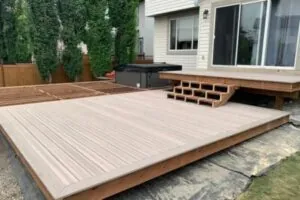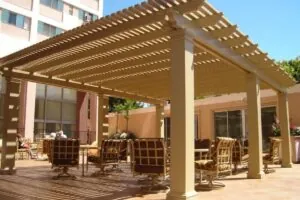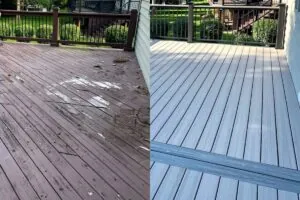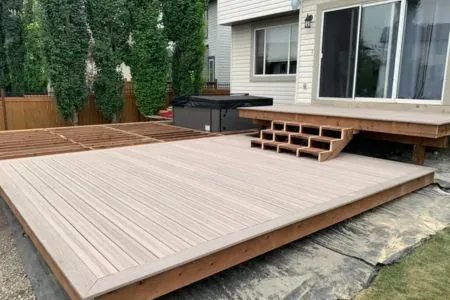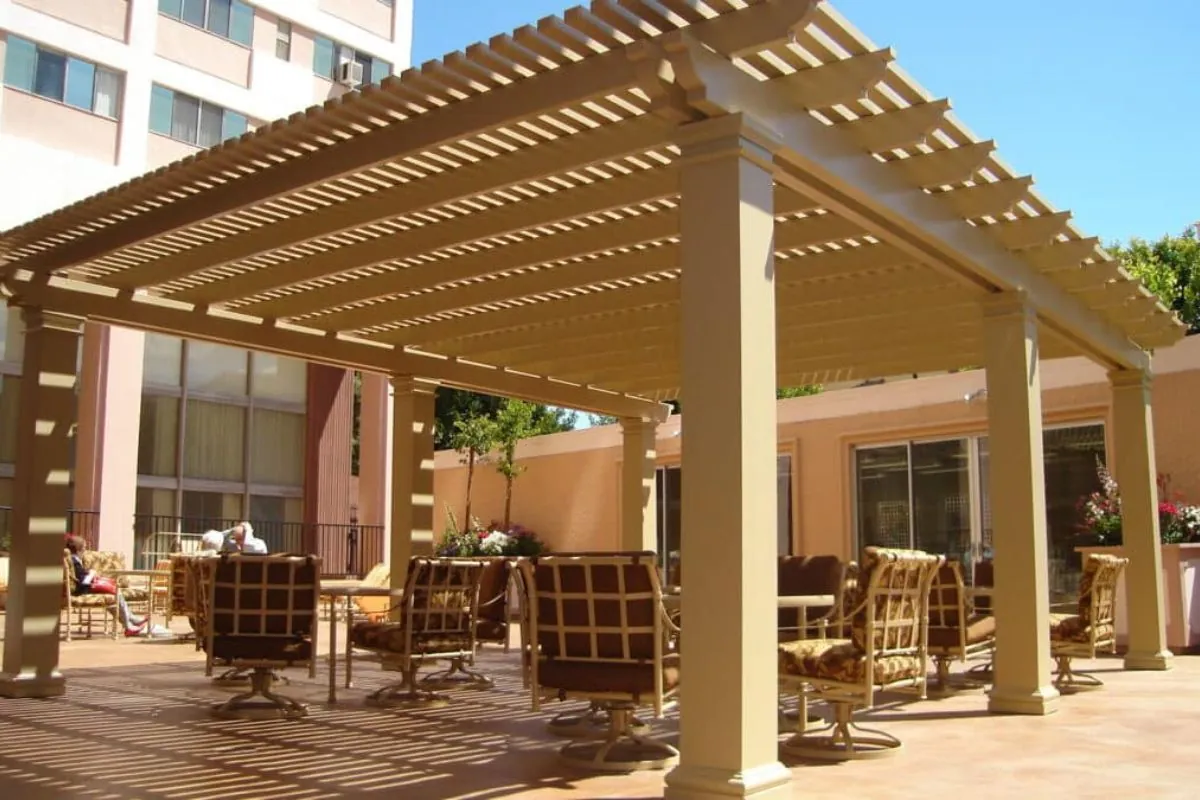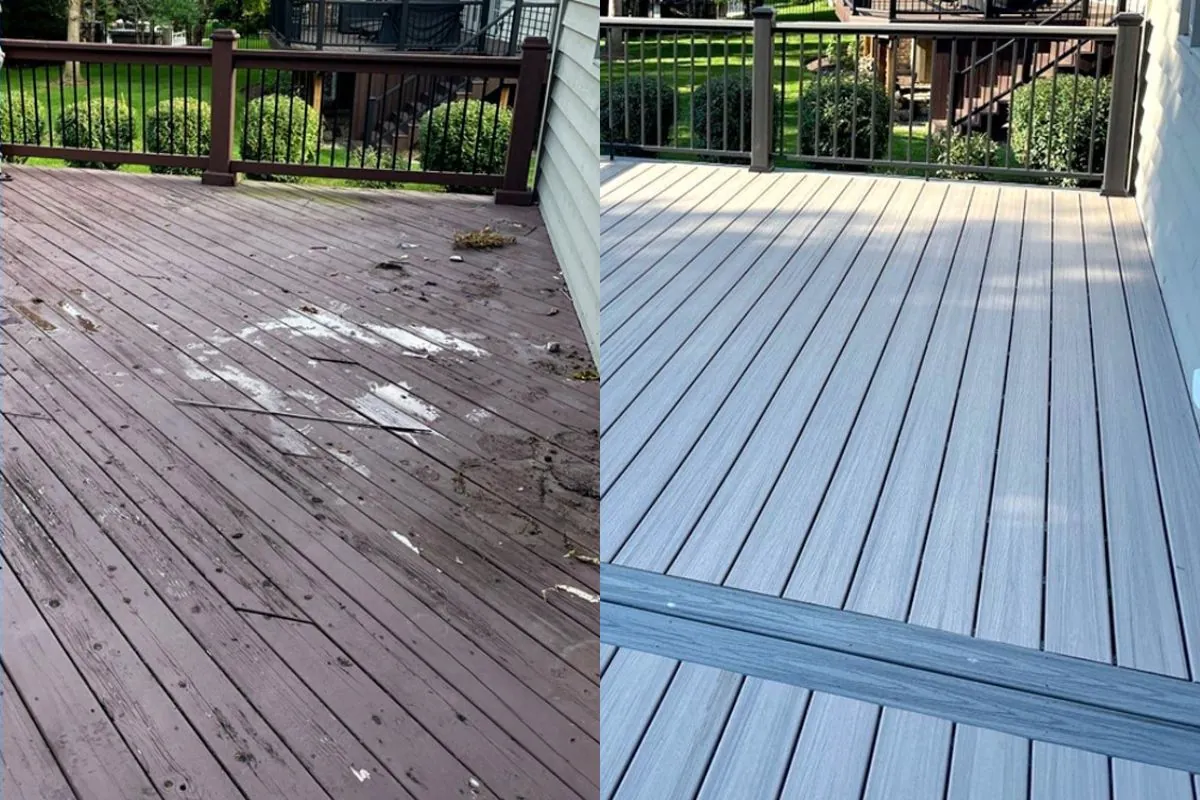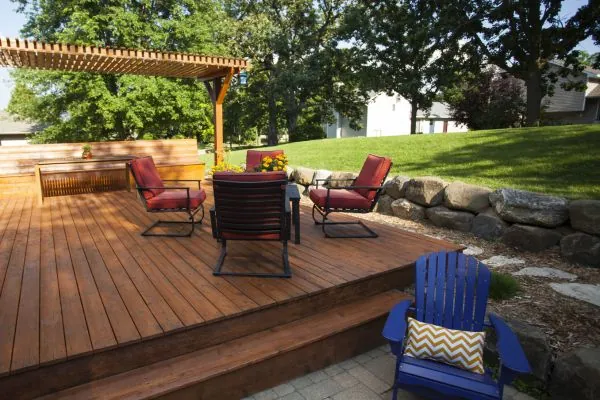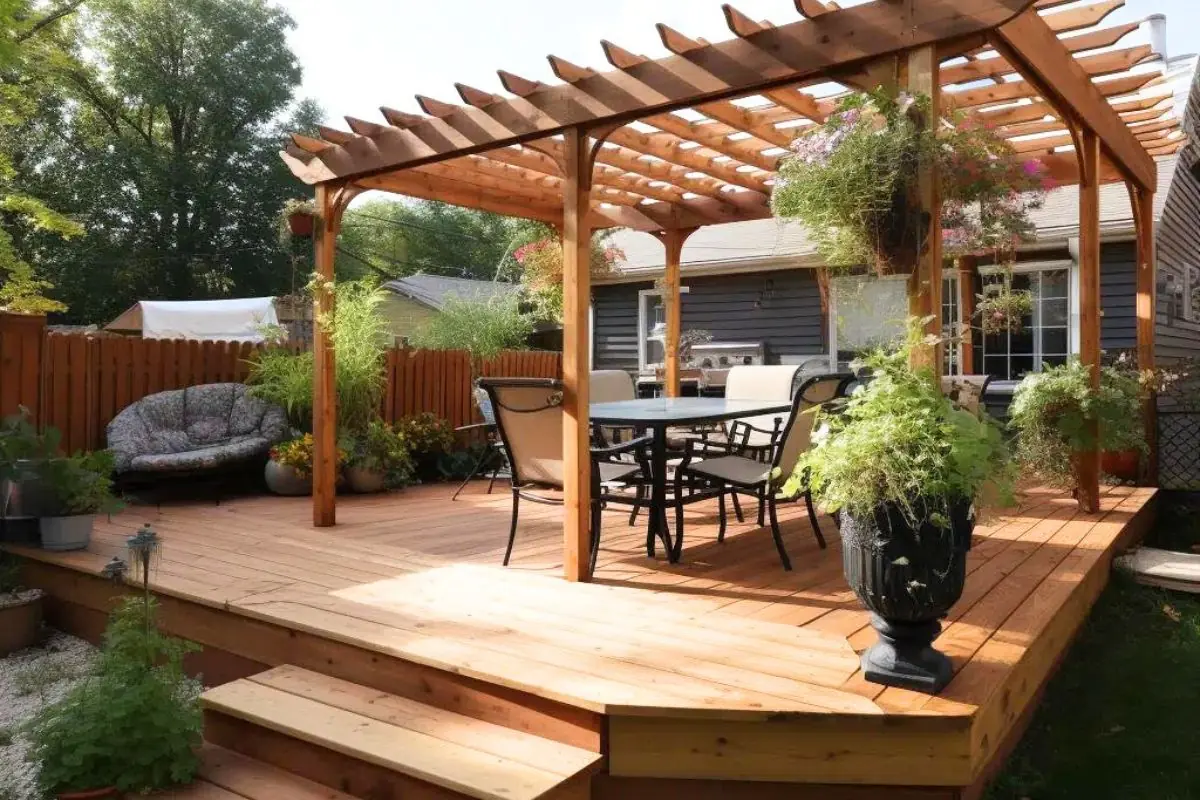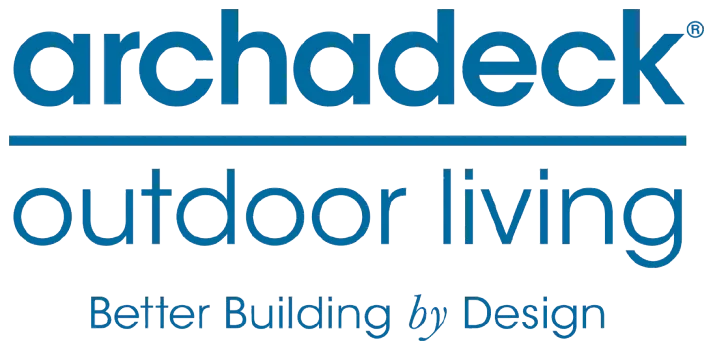Looking to upgrade your outdoor space? Discover the pros and cons of wood vs composite decking in our comprehensive comparison guide. Find out which material is best suited for your needs and budget. Imagine hosting an al fresco dinner on your own private deck, complete with a beautiful view of the stars. Aside from its aesthetic vibe, a well-built deck also adds coziness and comfort whenever you and your family want to hang out.
Instead of having loads of work indoors when visitors come over, you can do it outside, giving your home more privacy. With good lighting and ventilation, you could also use less energy. This is one of the best reasons for expanding your home in a way that makes it more useful and beautiful. That being said, you must decide your theme, design, and desired materials.
Check out the two most popular decking options on the market today and choose the one which suits your plans best.
What is Wood Decking?
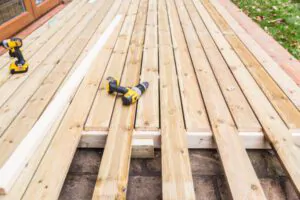
Wood is natural and more sustainable than artificial alternatives like plastic or metal. But you must not forget that all natural materials have their limits.
The key to enjoying your investment over the long run is taking purposeful care of it.
There are many options for choosing wood for your decking project. When constructing, you must follow precautions adhering to local building codes.
Railings are often built around a deck so that when you and your family are ready to use it, you avoid accidents.
So, for instance, if you prefer a pressure-treated wood deck, make sure to consult with a deck pro before using this wood material.
Pros
1. Wood decking is highly durable and will last a long time.
2. Wood decking will help to protect your home from the elements and make it more weatherproof.
3. Wood decking can add a decorative element to your garden or yard.
4. The style of wood you use can completely change the look of your deck and allow you to choose the perfect look for your space.
5. Wood decking is cost-effective and cheaper than many other materials on the market.
Cons
1. Wood can be prone to splitting and cracking over time, which can cause problems if the deck is exposed to extreme weather.
2. Wood decks are susceptible to damage from termites and other insects and will need a protective treatment to be applied to the surface of the wood to help protect it from insect damage. Over time, untreated wood can also deteriorate and become warped or cracked due to repeated exposure to moisture.
3. Wood decks require periodic maintenance to keep them in good condition. This involves sanding down the surface to remove scratches and cracks. You must also apply protective stains, periodically cleaning the wood to keep it free from dirt and debris that can build up on the surface.
4. Wood decks can be very slippery when wet; thus, you must be careful when walking on a damp deck to reduce the risk of slipping and falling. To avoid this problem, you can finish your deck with non-slip coatings to make it safer to walk on when it is wet. It is also a good idea to place non-skid strips along the edge of the deck to prevent people from slipping off the edge when walking.
What is Composite Decking?
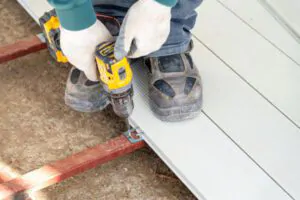
Composite decking uses different materials, including fiberglass, wood pulp, and resin. It has many advantages, like being made of natural wood, which is sturdy and durable and comes in various colors, but it is much less costly. It’s becoming more popular as a non-wood decking material because at first glance, you can’t tell that it’s not real wood. It also looks very modern.
Pros
1. Composite decking strength is incomparable. It does not require much maintenance and typically lasts for many years with little or no deterioration.
2. Composite decking is low maintenance. It does not tend to rot or deteriorate over time and needs minimal care with mild soap and water.
3. Composite decking comes in various styles and colors and is relatively easy to install. Find what complements the look of your home and fits well with your landscaping.
4. Some composite products come pre-assembled, while others require assembly with screws or nails. Deck installation can usually be done by homeowners themselves with minimal difficulty.
5. Composite decking price is also quite reasonable compared to other materials.
Cons
1. Direct sunlight can fade and discolor composite decking. To avoid this, use a daylight-resistant hue.
2. When installed improperly, composite decking might be damaged. If necessary, employ the best deck builders in Cherry Hill, NJ to help you build the deck.
3. Composite decking will eventually need to be replaced because it’s less durable than wood. It cannot be repaired like wood decking and must be replaced if damaged.
Let’s Make Your Dream Deck A Reality!
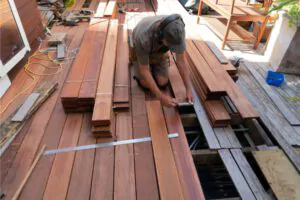
Have you decided which type you like? Is it composite or wood deck? If you haven’t yet, don’t worry because we are here to help you come up with a decision! Let our certified, reputable deck builders handle your deck-building project from start to finish.
Call us at 856-263-5251 or visit our website for a free consultation.
